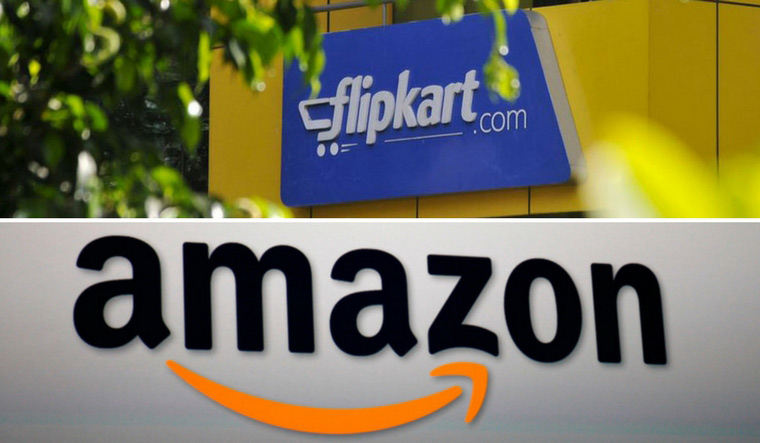E-commerce giants like Flipkart and Amazon will have to brace for some tough rules from next year as the Indian government has come out with new e-commerce guidelines. These guidelines will come into effect from 1st February 2019, leaving barely one month to e-tailers to get their acts together. These new rules have set forth several harsh conditions including prohibiting the online retailers from offering steep discounts, which potentially will make the popular phenomena of ‘deep discounts’ a thing of past.

Mentioned below are all the guidelines issued by the Ministry of Commerce and Industry on Tuesday.
- E-commerce companies like Flipkart and Amazon won’t be able to sell the product of their subsidiary companies or entities in which they hold an equity stake. This clearly means that from February of next year Amazon & Flipkart won’t be able to give any preference to products sold by their subsidiary companies like Cloudtail and Appario. This move seems to be a result of the several complaints lodged by smaller traders against Amazon and Flipkart’s alleged preferential treatment to certain big sellers.
- But the biggest setback is that the e-commerce companies from next year may not be able to offer deep discounts to their customers. This certainly won’t be good news for those loyal online shopping customers who have switched from offline to online shopping due to deep discounts. This may also cause problems for online retailers in maintaining the loyalty of their customers
- Cashback schemes have to be fair and non-discriminatory. This means that e-commerce companies will have to offer Cashback schemes on all products, whether they are being sold by their affiliate companies or not.
- In another massive setback, the new guidelines have barred online retailers from forging exclusive deals with companies. Hence from next year Xiaomi may not be able to sell its Mi phones exclusively on Flipkart or Amazon.
- If online retailers make more than 25% of purchases from a single seller then their business will be considered as inventory business model.
- E commerce firms will now have to produce a certificate along with a report of statutory auditor to India’s Central Bank by September 30 of every year. This will help the Indian government to check whether companies have comply by the rules or not.
How these new rules will affect e-commerce companies?
Right now it is quite difficult to gauge as to how much these new rules will affect the business of online retailers. But going forward it is almost certain that it will have some adverse impact on their business.
Most companies have remained tightlipped when asked to express their views. However, the signals so far have been pretty mix, indicating that many are not happy while some are.
“This policy makes no sense and is utterly ridiculous. The way this new policy has been crafted shows a complete lack of understanding of the retail landscape in India and how it functions. We were not even consulted before this was issued,” said a top executive at Amazon, who requested anonymity, to Livemint.
Flipkart has also indicated that it will lobby for either scrapping the rules altogether or making significant amendments.
Surprisingly, Snapdeal has welcomed the new policy. Snapdeal co-founder Kunal Bahl expressed his support to the new guidelines on his personal twitter account.

